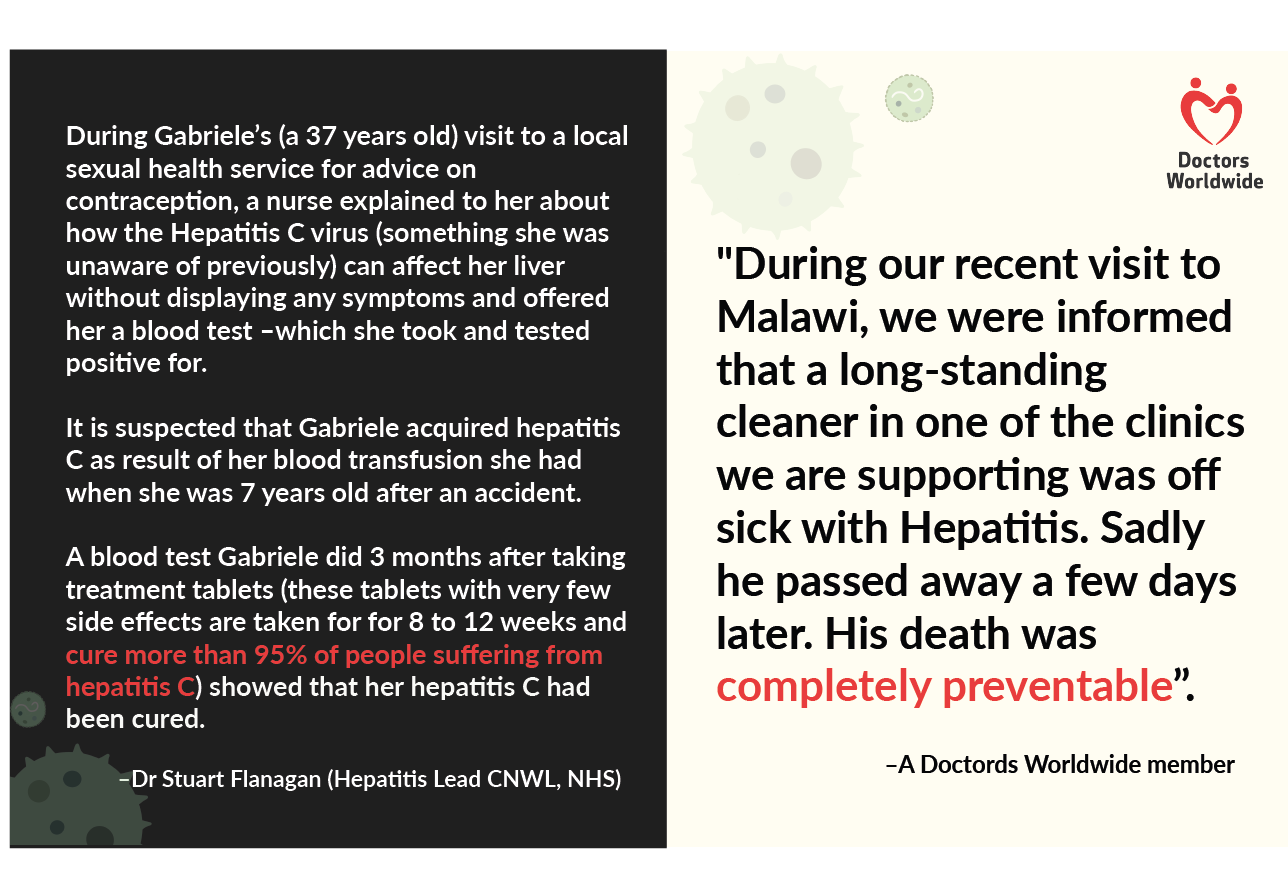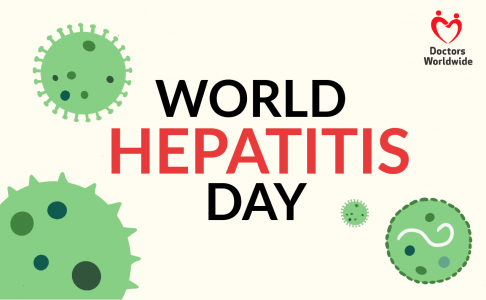Over 325 million people suffer from a hepatitis infection worldwide (WHO, 2021) and 90% of people do not know they have it until it is too late –this number can decrease significantly through awareness of testing and treatment.
This World Hepatitis Day, build your knowledge and raise awareness on viral Hepatitis –an inflammation of the liver that can cause severe liver disease and hepatocellular cancer.
To expand your knowledge on hepatitis and raise awareness of the disease that claims a life every 30 seconds (WHO, 2021) –we asked Dr Nadia, one of our medical experts from Doctors Worldwide’s Speciality Sub-Committee for Infectious Diseases (SSC-ID) and a consultant HIV and sexual reproductive health physician to provide the key information (in combination with WHO’s resources) laid out below with regards to hepatitis A, B and C.
About Hepatitis
There are several types of hepatitis such as –hepatitis A, hepatitis B, hepatitis C, hepatitis D and hepatitis E. However, the most commonly found types of hepatitis are A, B and C –hepatitis B and C in specific causes over 1 million deaths every year (WHO, 2021).
Hepatitis A, B and C Symptoms
Symptoms of hepatitis can range from no symptoms to mild flu-like symptoms as well as symptoms of liver failure, which include abdominal distension, jaundice and bleeding.
Main causes and risks of Hepatitis A, B and C
Hepatitis A is transmitted through the faecal-oral route (e.g., contaminated water, food, some sexual practices) whereas, hepatitis B and C are transmitted through sex, blood or mother to baby. The risks of hepatitis A are acute liver failure, which is rare. Though acute liver failure is a possible risk of hepatitis B and C, their other key risks are cirrhosis and hepatocellular carcinoma.
Treatments for hepatitis A, B and C
Whilst there are effective vaccines for hepatitis A and B, there is not one for hepatitis C yet but it can be cured with antiviral tablets. Additionally, hepatitis A is often self-limiting and just requires supportive treatment –whereas, hepatitis B can clear itself and if not can be treated and managed with antiviral tablets.
Hepatitis in Focus

Although both hepatitis case studies presented above are fitting evidence to the fact that 90% of people with viral hepatitis are unaware that they have it (WHO, 2021) –it shines light upon how testing and treatments for preventable diseases like hepatitis is critical in reducing avoidable deaths, as well as raising awareness. Sadly testing and treatment still remain beyond the reach for most, especially in low-to-medium-income countries like Malawi.
Both Gabriele’s case and the cleaner’s case highlights the importance of raising awareness on knowing your hepatitis status and spreading the word about treatment as well as the importance of aiding/supporting healthcare providers that are working towards the eradication and education of hepatitis across the globe.
What can you do?
Start by sharing this news story (or any other reputable informational resources around hepatitis such as those from the WHO) with your friends, family and social networks to raise awareness around viral hepatitis because #HepatitisCan’tWait. The minute or two you spare to share this information could be life-saving, and it may encourage a pregnant mother to get a hepatitis test or influence a young mother to get a hepatitis B vaccine for her newborn (that can prevent liver cancer in the future).
A WHO study found that 4.5 million premature deaths could be prevented in low- and middle-income countries by 2030 through vaccination, diagnostic tests, medicines and education campaigns. Help us to prevent further deaths and save lives by donating to Doctors Worldwide today.


